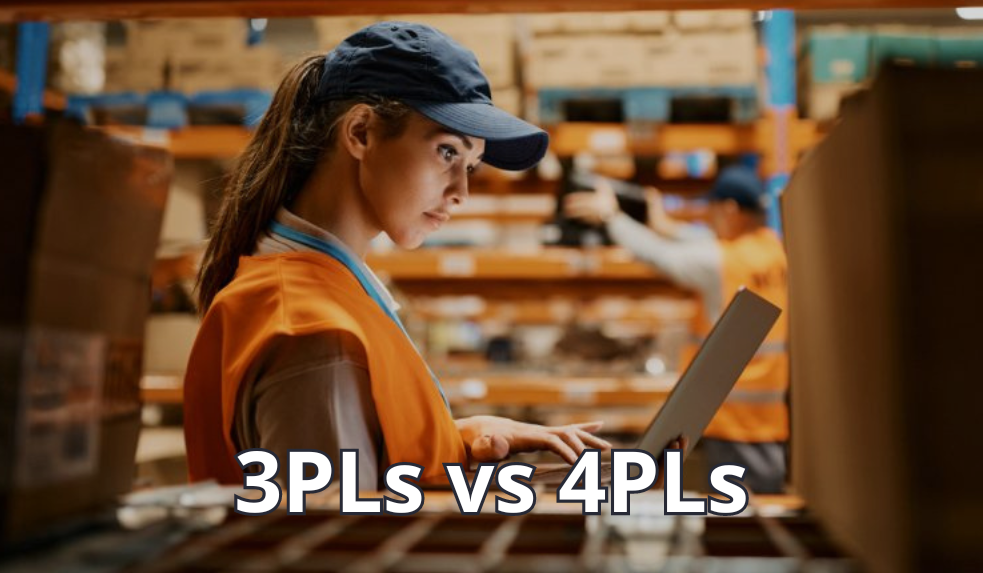Share this
Understanding 3PLs: Your Guide on How to Create an Inventory Strategy
by Christie McLeod on Jul. 27, 2022

Part Two
Choosing the right partner can make or break your company’s logistics, customer service, and repeat purchases. Using a fulfillment center like Shipfusion frees you from navigating the fulfillment landscape with zero stress. Below are some insights on how Shipfusion can take your business to the next level.
Third-Party Logistics (3PL)
If your business is considering using a third-party logistics (3PL) provider, there are many potential benefits to be gained. In general, 3PL providers can take on many different logistics functions, which can free up your time and resources to focus on other areas of your business. Additionally, 3PL providers typically have more experience and expertise in logistics than most in-house logistics departments and can therefore provide a higher level of service.
Here are some specific ways that your company can benefit from using a 3PL provider:
1. Cost savings: One of the most common reasons for companies to use a 3PL provider is to save money. 3PL providers can often get discounts from carriers because of the volume of business they do, and they can pass those savings on to their clients. Additionally, 3PL providers can often help companies optimize their logistics operations to further reduce costs.
2. Improved service: As mentioned above, 3PL providers typically have more experience and expertise in logistics than most in-house logistics departments. This can lead to improved service for your company, as 3PL providers can help you choose the most efficient and effective shipping methods, routes, and carriers.
3. Increased flexibility: Another benefit of using a 3PL provider is that it can increase the flexibility of your logistics operations. For example, if you need to increase or decrease your shipping volume on short notice, a 3PL provider can quickly and easily adjust their services to meet your needs and expand your fulfillment center.
4. Reduced risk: When you use a 3PL provider, you can often reduce the risk associated with your logistics operations. For example, if you ship a lot of perishable goods, a 3PL provider can help you choose carriers that have experience shipping such goods and that have the proper refrigerated trucks, etc.
5. Improved focus: As mentioned above, one of the main benefits of using a 3PL provider is that it can free up your time and resources to focus on other areas of your business. When you outsource your logistics to a 3PL provider, you can focus on your core competencies and leave the logistics to the experts. Third-party logistics (3PL) providers offer inventory management services to businesses. They can be used to track stock levels, movements, and locations. They can also be used to generate reports and alerts that focus on inventory management.
Advantages: 3PL providers offer a high degree of accuracy and can track large numbers of products quickly and easily. They can also generate reports and alerts, which can help businesses to identify problems and optimize their operations.
Disadvantages: 3PL providers can be expensive to use and can require a long-term commitment. They can also be inflexible, which can make it difficult for businesses to adapt their operations.
There are a variety of inventory management solutions available to businesses, depending on their needs. Some businesses may opt for a simple solution, such as keeping track of inventory levels manually. Others may need a more complex solution, such as an inventory management system that integrates with their existing business software.
Some of the most effective inventory management solutions include:
Inventory management software: This type of software helps businesses track inventory levels, orders, and sales and generate reports so businesses can see which products are selling well and which ones need to be reordered.
Inventory management software provides real-time data on inventory levels, inbound and outbound shipments, and inventory valuation. This information helps businesses make informed decisions about inventory levels and stock replenishment. The software also facilitates the management of supplier information and purchase orders.
Inventory management software can also help businesses save money by reducing inventory levels and preventing stock-outs. The software can improve customer service levels by ensuring that products are available when needed. In addition, inventory management software can help businesses to better manage their supply chain and reduce their reliance on inventory financing.
Barcoding and RFID: As described above, barcoding and RFID (radio frequency identification) can be used to track inventory levels and locations. Barcodes are placed on products, and RFID tags are attached to products or inventory shelves. This information is scanned and tracked using special software to help track movement of stock and adjust inventory levels.
Barcode scanners can help with inventory management strategy in several ways. First, they can help you keep track of your inventory levels. This is important because it can help you determine when you need to order more products and can also help you keep track of your product levels.
Additionally, barcode scanners can help you keep track of your product locations. This can be helpful if you have a large inventory and need to know where your products are located. Finally, barcode scanners can help you keep track of your product expiration dates. This is important because it can help you ensure that your products are still fresh, your order pullers are using FIFO standards, and that you don’t have any expired products.
Just-in-Time Inventory: This is a type of inventory management system where inventory is only ordered and delivered as needed. This can help businesses avoid the cost of storing excess inventory.
Inventory management is a process whereby businesses keep track of the goods and materials they have on hand. And a just-in-time inventory (JIT) system is of great help to a business on how to use to manage their inventory.
JIT inventory management allows companies to improve their production efficiency and decrease their inventory costs. A JIT system helps eliminate the need for storage space and reduces the risk of inventory obsolescence.
JIT inventory systems are beneficial because they can help businesses save money, increase production efficiency, and reduce the risk of inventory obsolescence. However, JIT systems can also be challenging to implement and manage.
Kanban: Kanban is a type of inventory management system that is often used in manufacturing. It uses cards or other visual cues to signal when inventory needs to be replenished.
Kanban inventory is a system where items are pulled through the production process based on customer demand. This type of inventory system is beneficial because it eliminates the need for large amounts of inventory, which can save space and money. In addition, this system can help to avoid stock-outs and production delays.
A Kanban system helps businesses to keep track of their inventories and to ensure that they always have the right amount of stock on hand. This system is based on the principle of just-in-time production, which means that businesses only produce what is needed, when it is needed.
If you are considering implementing a Kanban system for inventory management, then there are a few things you should keep in mind. Firstly, you need to ensure that you have a good understanding of the system and how it works. Secondly, you need to make sure that you have the right tools and software in place to support the system. Finally, you need to ensure that you have the necessary training and support in place to help your employees to use the system effectively.
Next Week: Common Inventory Management Mistakes
Shipfusion sets your business on autopilot and combines flexible, reliable fulfillment with powerful, real-time technology. Shipfusion has multiple fulfillment centers across the US and Canada– making it easy to manage your eCommerce business. For more information on how to set your business on autopilot, contact one of our fulfillment specialists today.
Share this
You May Also Like
These Related Articles

3PL vs. 4PL: Which Is the Right Solution For Your Business?

Part 3: Insights from Shipfusion’s Senior Solutions Architect

Finding The Right 3PL Ecommerce Fulfillment Partner
- April 2024 (7)
- March 2024 (5)
- February 2024 (5)
- January 2024 (5)
- December 2023 (4)
- November 2023 (2)
- October 2023 (5)
- September 2023 (4)
- August 2023 (2)
- July 2023 (1)
- June 2023 (4)
- May 2023 (1)
- March 2023 (2)
- February 2023 (1)
- October 2022 (1)
- September 2022 (5)
- August 2022 (4)
- July 2022 (7)
- June 2022 (4)
- May 2022 (5)
- April 2022 (7)
- March 2022 (2)
- February 2022 (1)
- January 2022 (3)
- December 2021 (2)
- November 2021 (4)
- October 2021 (2)
- September 2021 (5)
- August 2021 (4)
- July 2021 (5)
- June 2021 (4)
- May 2021 (2)
- April 2021 (3)
- March 2021 (3)
- February 2021 (3)
- January 2021 (2)
- December 2020 (4)
- November 2020 (2)
- October 2020 (4)
- September 2020 (2)
- August 2020 (1)
- July 2020 (6)
- June 2020 (5)
- May 2020 (2)
- April 2020 (2)
- March 2020 (4)
- February 2020 (1)
- December 2019 (1)
- May 2018 (1)
- March 2018 (2)
- February 2018 (3)
- January 2018 (3)
- November 2017 (3)
- July 2017 (4)
- March 2017 (3)
- February 2017 (5)
- January 2017 (3)
- December 2016 (4)
- November 2016 (6)
- October 2016 (6)
- October 2015 (1)
- September 2015 (1)
- June 2015 (3)
- May 2015 (3)
- August 2014 (1)
- July 2014 (1)
- March 2014 (1)
- February 2014 (1)